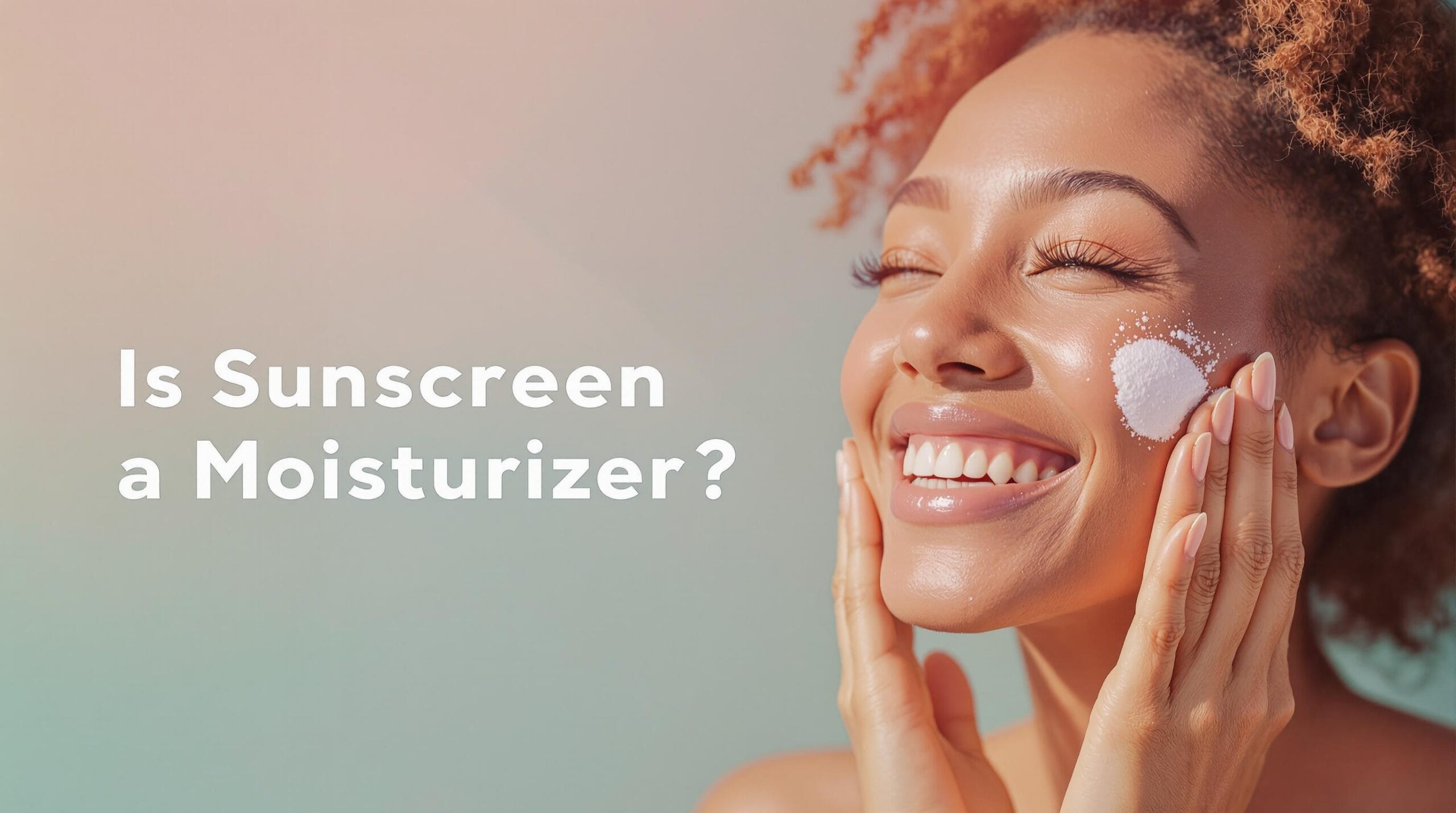
Many people wonder, “Is sunscreen a moisturizer?” This question stems from the confusion that arises when choosing products for skin care. Both sunscreen and moisturizer serve vital roles in skin health. However, they have distinct purposes. This article clarifies their functions and explores the necessity of using both products for effective skincare.
Covering the Basics: What Is Sunscreen?
Sunscreen protects the skin from harmful ultraviolet (UV) rays. It helps prevent sunburn, skin aging, and reduces the risk of skin cancer. There are two main types of sunscreens: physical and chemical. Physical sunscreens contain active mineral ingredients like zinc oxide or titanium dioxide, which sit on top of the skin and reflect UV rays. Chemical sunscreens absorb UV rays through their chemical ingredients and convert them into heat, which the body then releases.
The effectiveness of sunscreen is measured by its Sun Protection Factor (SPF). SPF indicates the level of protection against UVB rays, which cause sunburn. For adequate protection, dermatologists often recommend using a broad-spectrum sunscreen with an SPF of at least 30. This ensures that the sunscreen protects against both UVA and UVB rays, safeguarding your skin effectively.
Moisturizers 101: What They Do for Your Skin
Moisturizers play a crucial role in skin hydration and nourishment. They help maintain the skin’s moisture barrier, preventing dryness and irritation. A good moisturizer contains hydrating ingredients like hyaluronic acid, glycerin, and various oils. These ingredients work together to draw moisture into the skin and lock it in, keeping the skin plump and healthy.
Moisturizers function by creating a protective layer on the skin’s surface. This layer helps retain moisture and prevents water loss. When choosing a moisturizer, consider your skin type. For example, oily skin may benefit from a lightweight, oil-free formula, while dry skin may require a heavier, more emollient product.
Fun Fact! Can Your Sunscreen Be Both?
Yes, some products combine sunscreen and moisturizer features. Known as hybrid SPF-moisturizers, these products have gained popularity. They often contain hydrating ingredients along with sun protection, making them convenient for users. However, when choosing such products, ensure they offer sufficient SPF and moisturizing factors to meet your skin’s needs.
The Great Debate: Is Sunscreen A Moisturizer?
Some argue that certain sunscreens can act as moisturizers. Many sunscreens include hydrating ingredients like glycerin or oils, providing some moisture. However, while these sunscreens hydrate the skin, they often do not provide the same level of hydration as dedicated moisturizers. The moisturizing properties in sunscreen may not be enough for those with dry or dehydrated skin.
It’s essential to recognize that everyone’s skin type is different. For instance, those with dry skin may need a dedicated moisturizer, while others with oily skin may find a moisturizing sunscreen sufficient. Layering products based on individual needs often yields the best results for skin health.
How to Choose the Right Sunscreen for Your Skin
Choosing the right sunscreen involves understanding your skin type. For oily skin, look for oil-free, non-comedogenic formulas. If you have dry skin, opt for sunscreens enriched with moisturizers. Always check product labels for keywords like “broad-spectrum” and “water-resistant” to ensure adequate protection.
Integrating sunscreen into your daily routine is crucial. Apply it generously on all exposed skin areas at least 15 minutes before sun exposure. Don’t forget to reapply every two hours, especially when swimming or sweating, to maintain effective protection.
Top Picks: Sunscreens That Moisturize
Here are some recommended sunscreens that effectively combine sun protection and moisturizing benefits:
| Product Name | Skin Type | Key Features |
|---|---|---|
| Neutrogena Hydro Boost Sunscreen | All Skin Types | Contains hyaluronic acid for hydration |
| CeraVe Hydrating Sunscreen | Dry Skin | Includes ceramides for a moisture barrier |
| EltaMD UV Clear Broad-Spectrum SPF 46 | Sensitive Skin | Non-comedogenic, fragrance-free |
Expert reviews praise these sunscreens for combining hydration with effective sun protection. Users also report positive experiences, highlighting their ease of application and skin-feel.
The Do’s and Don’ts of Sunscreen Application
When applying sunscreen, follow these do’s: apply an adequate amount (about a shot glass worth for the body), use gentle massaging techniques, and reapply every two hours. Avoid common mistakes like skipping application on cloudy days or relying solely on makeup with SPF for protection.
Final Thoughts: The Balanced Skincare Routine
In conclusion, both sunscreen and moisturizer play essential roles in skincare. While some sunscreens provide hydration, they cannot entirely replace a dedicated moisturizer for those with significant dryness. It’s vital to assess your skin’s needs and create a balanced routine incorporating both sunscreen and moisturizer for optimal skin health.
FAQs: Your Burning Questions Answered!
1. Is sunscreen enough on its own? While some sunscreens have moisturizing properties, they may not provide all the hydration your skin needs.
2. Can I skip moisturizer if I use sunscreen? It depends on your skin type. Many may need both for adequate hydration.
3. How often should I reapply sunscreen? Reapply every two hours, especially after swimming or sweating.
For further reading on the best sunscreens options, visit. We’d love to hear your thoughts! Share your experiences with sunscreen and moisturizers in the comments below.







